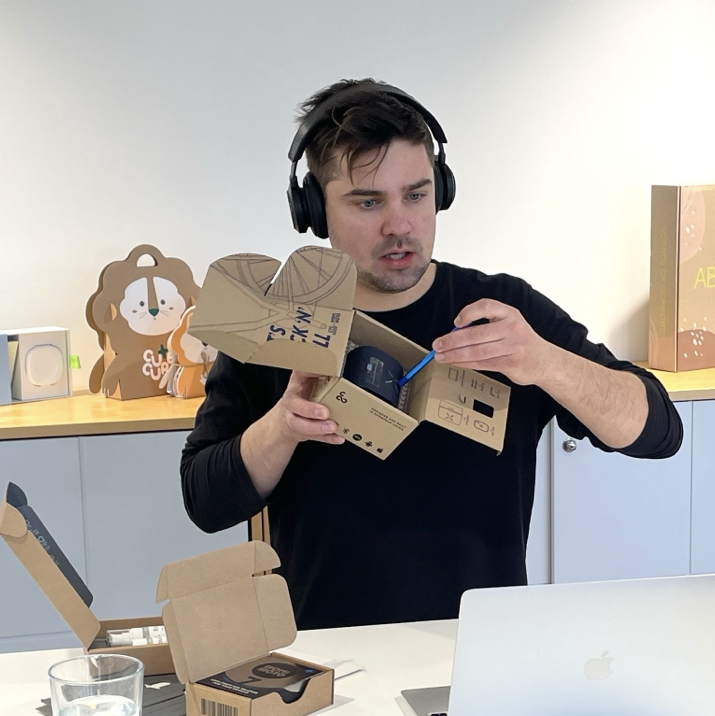10 brands exploring sustainable packaging
Sustainability has to be one of the most important considerations in packaging right now. From moving away from plastic to more sustainable options, to designing brand new materials from scratch, the quest for sustainable packaging is top of the agenda for many of the world’s biggest brands. Here are 10 brands that are pushing the sustainability envelope:
- Colgate’s recyclable toothpaste tube
Toothpaste tubes are usually made of a mix of materials that make them impossible to recycle. Colgate has spent five years researching alternative options that are eco-friendlier, while still preserving the toothpaste flavour and ingredients. The company has been able to use high-density polyethylene to make a tube that can be recycled (much like milk cartons) but is also compatible with Colgate’s high-speed production equipment. The tube can even be ground up to be used to make something else. Expect to see the new tubes rolling out soon, with all Colgate products switching to the recyclable material by 2025.

- Waitrose’s compostable ready meal packaging
UK grocery retailer Waitrose has ditched black plastic packaging for its ready meals in favour of a new compostable design. The new containers are made of a fibre-based material with a similar texture to cardboard. They can be recycled, but are also certified as home compostable, which means customers can pop them in their compost bin once they’re done with them. The new material has been designed to be heated in an oven or microwave, while being cool to the touch after. Waitrose first plans to shift its Italian ready meals over to the new packaging, which it says will save 158 tonnes of black plastic.

- Don Maslow’s compostable coffee packaging
Coffee is one of those products where packaging innovation has been tough. The bags need to be airtight and block out light, heat and water. Don Maslow is one company that has been able to find a more sustainable solution. It’s using Elevate Packaging’s compostable films which are durable, yet moisture and oxygen resistant. As a result, every element of its coffee bags, including the seals, can be composted removing a huge amount of plastic from waste streams.

- Nestle’s recyclable paper wrapper
Nestle has developed a new paper wrapper for its Yes! Bars, which can be recycled. Traditionally most wrappers on chocolate bars and snack bars can’t be recycled, so this development could be a real breakthrough for the industry. It’s part of Nestle’s push to make all packaging recyclable or reusable by 2025. The paper wrapper has been adapted to be durable enough to work with the existing high-speed production lines, while at the same time preserving the product in the same way as current wrappers. With the need to reduce plastic packaging very real, we may well see this design rolled out more widely soon.

- Rise Mrkt’s compostable packaging
Rise Mrkt isn’t actually operational yet. The company is currently drumming up backing via Kickstarter for its new 100% plastic free grocery store. It wants to sell dry goods without any plastic packaging. Instead its products would ship in compostable pouches. To ensure that the packaging isn’t just thrown away, Rise Mrkt plans to send out shipping labels that customers can use to send back their empty pouches for composting. It’s an interesting look at how plastic can be eliminated from the very start.

- Alter Eco’s compostable truffle wrapper
Chocolate company Alter Eco has committed to moving to fully recyclable or compostable material by 2020. It has started with its truffle wrappers, which are now fully compostable and non-toxic. The company spent three years developing the new material to ensure it protects the products as well as traditional packaging. It can be composted in industrial facilities but will also biodegrade if it ended up in the normal streams. Alter Eco has also created fully compostable stand-up pouches for its quinoa products.

- Conscious Chocolate’s compostable packaging
Vegan chocolate company Conscious Chocolate has moved to a range of packaging that can be composted and recycled. It took the company over a year to develop the new packaging which features vegetable based inks. As well as having structural integrity, the new range features the sort of functionality customers have become used to, such as a resealing capability.

- Roberts Bakery’s recyclable wrappers
Roberts Bakery has become the UK’s first bakery company to switch to 100% recyclable packaging for its Bloomer range. The wrapping is recyclable paper with a recyclable clear film, which means it can be put right into the home recycling when done. The move has already cut Roberts Bakery’s plastic usage by 53%. Roberts intends to move to fully paper wrappers in the future and to extend the new packaging to other product lines.

- Unilever’s recyclable black packaging
Black plastic packaging is a recycling issue in many countries. Unilever, in partnership with RECOUP, WRAP, Veolia, SUEZ, Viridor and TOMRA, has been developing a solution to this problem. The new colouring system removes the carbon that is typically used in black packaging. This means that not only can the new black plastic be detected at recycling plants, but it can more easily be recycled. This could be a major step forward in ensuring that all plastic packaging, where used, is at least recyclable.

- BOXED Water’s cardboard bottle
While we all understand the need to reduce our single-use product consumption, sometimes convenience wins out. It’s for these occasions that BOXED Water created its cardboard water bottle. Three-quarters of the box is made of paper, but the whole thing is fully recyclable. The design also reduces carbon emissions as boxes can be shipped flat to local refilling points meaning fewer trucks are needed.

By Cate Trotter, Head of Trends, Insider Trends, London


